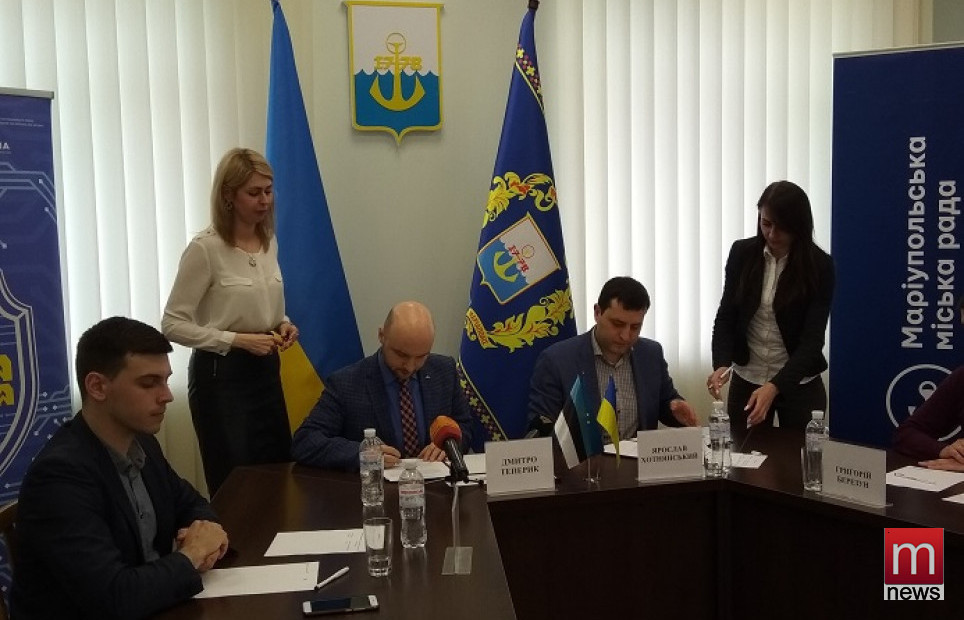ICDS Cooperation with Mariupol and Launch of Applied Research Study on Ukraine’s Resilience

The ICDS launched an empirical research in South-East Ukraine and signed a memorandum of cooperation with Mariupol City Council in Donetsk region.
From 15th to 17th April, the empirical research on examining information, communications and cyber security was launched in Mariupol (Donetsk region), Berdyansk and Melitopol (Zaporizhzhia oblast). Two more oblasts (Mykolaiv and Kherson) will be covered by research team in May.
During this 3-day period, the project team conducted interviews with 11 anonymous focus groups and questioned more than 70 people with different social backgrounds. In particular, internally dispersed people, combatants from Anti-Terrorist Operation Zone of Ukraine, representatives of ethnic and religious minorities, civil servants of city administrations, security and judicial sector.
“Focus groups reviled the importance of culture of information consumption for modern society. Living in the post-truth age, people easily trust fakes, gossips, questionable option leaders and conspiracy theories,” said Anastasia Apetyk, a team member and a representative of Expert Centre for Human Rights.
In addition, ICDS signed a memorandum of cooperation with Mariupol City Council on 15th April. From now on, specialists and young professionals from Mariupol have an opportunity to learn from Estonian colleagues and their experience.
“For four years now, the development cooperation programme “Resilient Ukraine” has been implemented with kind support of the Estonian Ministry of Foreign Affairs. The practical programme aims to develop information security on the regional level,” noted Dmitri Teperik, ICDS Chief Executive.
Programme “Resilient Ukraine” promotes Estonian experience in developing and implementing a comprehensive model for competencies related to strategic communication, and cyber and information security. It also supports the implementation of Ukraine’s decentralisation reforms through human capacity development for informational resilience.
